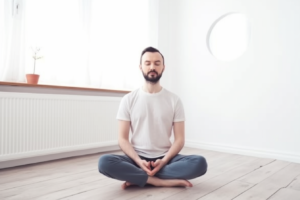Living with anxiety and panic attacks can be incredibly debilitating, leaving you feeling overwhelmed and trapped in a cycle of fear. However, there are many simple, natural changes you can make to help break this cycle and regain control over your life. In this article, we’ll explore 12 strategies to help you gain long-term freedom from anxiety and panic attacks, without the use of medication.
1. Understand Your Triggers for Freedom from Anxiety
The first step to overcoming anxiety and panic attacks is to identify your personal triggers. These can be specific situations, environments, or even thoughts that provoke feelings of panic. By recognizing these triggers, you can begin to develop coping strategies and make changes to minimize their impact on your life.
2. Establish a Consistent Sleep Routine
Poor sleep quality can exacerbate anxiety and contribute to panic attacks. Establishing a consistent sleep routine can help to promote better mental health and lasting freedom from anxiety. Aim for 7-9 hours of sleep each night, and maintain a regular bedtime and wake-up time, even on weekends.
3. Practice Deep Breathing Techniques
Deep breathing exercises can be a powerful tool for managing anxiety and preventing panic attacks. Techniques like diaphragmatic breathing and the 4-7-8 method can help to activate your body’s relaxation response and reduce the severity of panic symptoms.
4. Engage in Regular Exercise
Exercise has been shown to have a positive impact on mental health, including reducing anxiety and preventing panic attacks. Aim for at least 150 minutes of moderate-intensity exercise per week, such as brisk walking, swimming, or cycling. Choose an activity that you enjoy, as this will make it easier to maintain consistency and achieve freedom from anxiety.
5. Adopt a Healthy Diet
The food we eat can have a significant impact on our mental health. Aim for a well-balanced diet rich in whole grains, lean proteins, fruits, vegetables, and healthy fats. Avoid excessive caffeine and sugar, as these can contribute to anxiety and panic attacks.
6. Establish a Support Network
Having a strong support network can make a big difference in managing anxiety and panic attacks. Reach out to friends, family members, or a mental health professional who can provide understanding, encouragement, and guidance as you work towards long-term freedom from anxiety.
7. Incorporate Relaxation Techniques
Regularly practicing relaxation techniques such as progressive muscle relaxation, meditation, or yoga can help to reduce anxiety and prevent panic attacks. Set aside time each day to engage in one or more of these practices, and experiment with different methods to find what works best for you.
8. Develop Mindfulness Skills for Lasting Freedom from Anxiety
Mindfulness is the practice of maintaining nonjudgmental awareness of your thoughts, feelings, and bodily sensations as they arise. By cultivating mindfulness, you can learn to observe anxious thoughts without becoming overwhelmed by them, reducing the likelihood of a panic attack and promoting lasting freedom from anxiety.
9. Set Realistic Goals and Priorities
High levels of stress can contribute to anxiety and panic attacks. To reduce stress, it’s essential to set realistic goals and priorities for your personal and professional life. Break larger tasks into smaller, manageable steps, and be kind to yourself if you don’t achieve everything on your to-do list.
10. Seek Professional Help
While self-help strategies can be effective in managing anxiety and panic attacks, it’s important to recognize when professional help may be necessary. If your symptoms are severe or persistent, consider seeking the guidance of a mental health professional specializing in anxiety disorders.
11. Maintain a Journal
Keeping a journal can be a helpful tool for managing anxiety and panic attacks. Regularly writing about your thoughts, feelings, and experiences can help you identify patterns and triggers, as well as track your progress and personal growth towards freedom from anxiety.
12. Practice Gratitude
Focusing on the positive aspects of your life can help to shift your perspective and reduce anxiety. Develop a daily gratitude practice, such as listing three things you’re grateful for each day, to cultivate a more positive mindset and build resilience against anxiety and panic attacks.
Conclusion:
Gaining long-term freedom from anxiety and panic attacks may seem like a daunting task, but by implementing these 12 simple changes, you can take control of your anxiety and begin to live a more fulfilling life. Remember that progress may be gradual, and setbacks are a normal part of the journey. Stay patient, persistent, and compassionate towards yourself as you work towards a life of freedom from anxiety and panic attacks.



